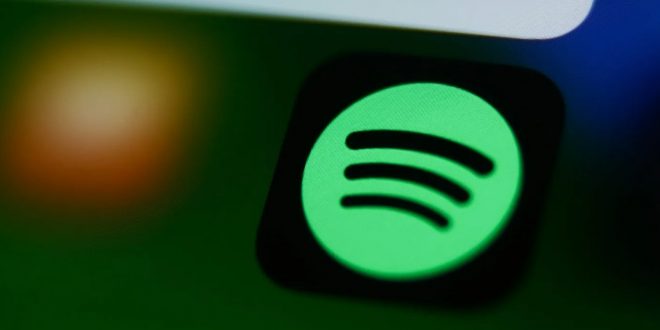Spotify is among the companies expressing dissatisfaction with Apple’s approach to complying with the EU’s Digital Markets Act (DMA). The DMA aims to introduce features such as sideloading apps, alternative app stores, browser choice, and other changes. Last Friday, the streaming music company released its official statement in regards to Apple’s recently implemented DMA regulations. In their response, they strongly criticized the new fees imposed on developers, describing them as “extortion,” and expressed their disbelief in Apple’s compliance plan, which they deemed “a complete and total farce.” These remarks reflect the streaming music company’s perception that Apple considers itself exempt from the rules.
Last week, Apple made several announcements to ensure compliance with EU regulations, although some argue that they may not fully align with the intended purpose of the law. The company announced that app developers in the EU will be subject to lower commissions. Additionally, a new “core technology fee” has been introduced, which mandates developers to pay €0.50 for each initial annual installation per year, if it exceeds 1 million, regardless of the distribution channel used. In addition, a 3% payment processing fee will be applied when developers opt to use Apple’s in-app payments rather than their own.
Tim Sweeney, the CEO of Epic Games, who filed a lawsuit against Apple on antitrust grounds, has strongly criticized Apple’s plan, describing it as a form of “malicious compliance” and burdened with unnecessary fees. Spotify has now echoed similar sentiments.
The streamer, along with Epic, Match, and other entities, has consistently expressed concerns about the tech giant and advocated for enhanced regulation, such as through the DMA.
Spotify CEO Daniel Ek recently expressed his thoughts on Apple’s DMA announcement in a company blog post and a series of posts on X (formerly Twitter). This came after a thorough review by Spotify’s legal team. The author starts by criticizing the announcement, describing it as both unclear and deceptive, and expressing their disappointment in the company’s actions.
According to Ek, Apple’s solution is criticized for distorting the situation by offering app developers a choice between the existing terms or a more complex alternative that may seem appealing at first but could ultimately result in higher fees. The author highlights that apps with a significant user base in the European Union would now be subject to an additional tax for each new download and update on an annual basis. This would have implications for several popular apps such as WhatsApp, Duolingo, X, Pinterest, and even Spotify itself.
The system appears to be specifically designed to prevent apps from utilizing alternative methods of distribution, such as sideloading or alternative app stores. Nevertheless, the absence of popular applications on these alternative platforms may diminish their attractiveness to users. According to Ek, Apple’s App Store will continue to hold its authority.
In addition, due to the raised fees, Spotify is left with no alternative, as Ek explains. The company is compelled to adhere to the existing system.
“Spotify finds itself in a challenging position,” he states. Given the substantial EU Apple install base of around 100 million, the imposition of this tax on downloads and updates has the potential to significantly inflate our customer acquisition costs, potentially increasing them by a factor of ten. Every user, regardless of their usage, is required to pay for every installation or update of our app, whether it is the free version or the paid version. What is the current conclusion or status of the matter? Given the current conditions, it is not financially viable for our company to continue with these fees. Therefore, our only feasible course of action is to maintain the existing situation. According to Ek, this is the very thing that has been the focus of our fight for the past five years.
He concludes by urging lawmakers to acknowledge Apple’s actions and remain steadfast, ensuring that their years of work do not go to waste. There is global attention on the matter,” Ek writes.
Ek’s statement comes after receiving criticism from Epic Games and the Coalition for App Fairness (CAF), a lobbying group that consists of various companies including Epic, Spotify, Tile, Basecamp, Match, Deezer, and several other smaller developers. The organization stated that Apple’s new fees on direct downloads and payments are in violation of the law. They argue that these fees do not promote competition or fairness in the digital market.
Rick VanMeter, Executive Director of CAF, stated that Apple’s proposal presents developers with two options that are both anticompetitive and illegal. One option is to continue with the current unsatisfactory situation, while the other is to choose a complex set of conditions that are detrimental to both developers and consumers. This is another attempt to bypass regulation, similar to what has been observed in the United States, the Netherlands, and South Korea. The proposed strategy by Apple is a blatant disregard for the European Commission and the vast number of European consumers they represent. The Commission must reject this plan and shouldn’t accept it.
Mozilla has expressed its opposition to Apple’s new browser rules, describing them as highly challenging.
Apple issued a statement in response to Spotify’s post:
“We’re happy to support the success of all developers — including Spotify, which has the most successful music streaming app in the world. The changes we’re sharing for apps in the European Union give developers choice — with new options to distribute iOS apps and process payments. Every developer can choose to stay on the same terms in place today. And under the new terms, more than 99% of developers would pay the same or less to Apple.”
 Tech Gadget Central Latest Tech News and Reviews
Tech Gadget Central Latest Tech News and Reviews




